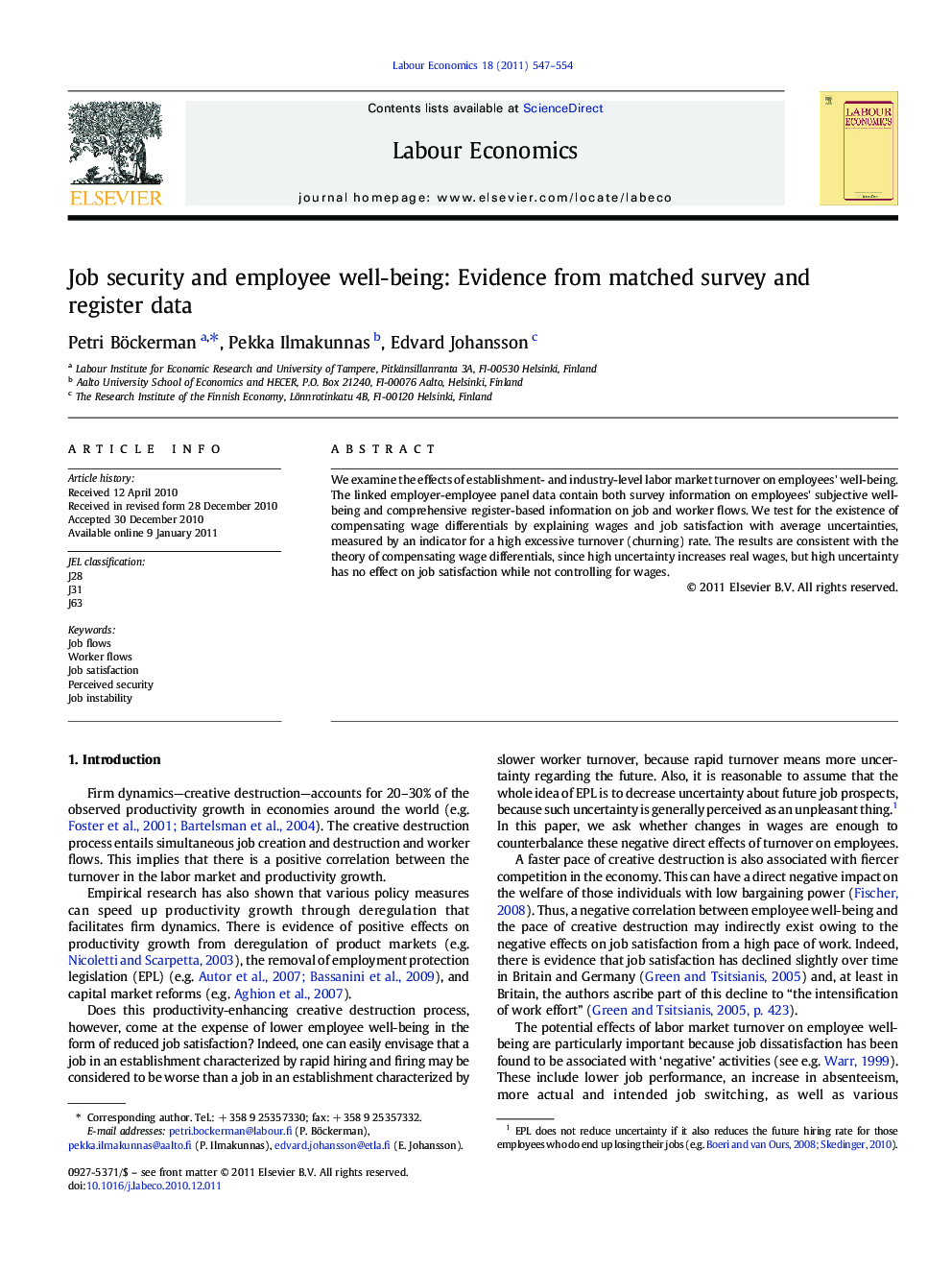| Article ID | Journal | Published Year | Pages | File Type |
|---|---|---|---|---|
| 972808 | Labour Economics | 2011 | 8 Pages |
We examine the effects of establishment- and industry-level labor market turnover on employees' well-being. The linked employer-employee panel data contain both survey information on employees' subjective well-being and comprehensive register-based information on job and worker flows. We test for the existence of compensating wage differentials by explaining wages and job satisfaction with average uncertainties, measured by an indicator for a high excessive turnover (churning) rate. The results are consistent with the theory of compensating wage differentials, since high uncertainty increases real wages, but high uncertainty has no effect on job satisfaction while not controlling for wages.
Research Highlights► Register data on job and worker flows are matched to individual well-being responses. ► Uncertainty is measured by excess worker and job turnover. ► High uncertainty increases real wages. ► High uncertainty has no effect on job satisfaction while not controlling for wages.
